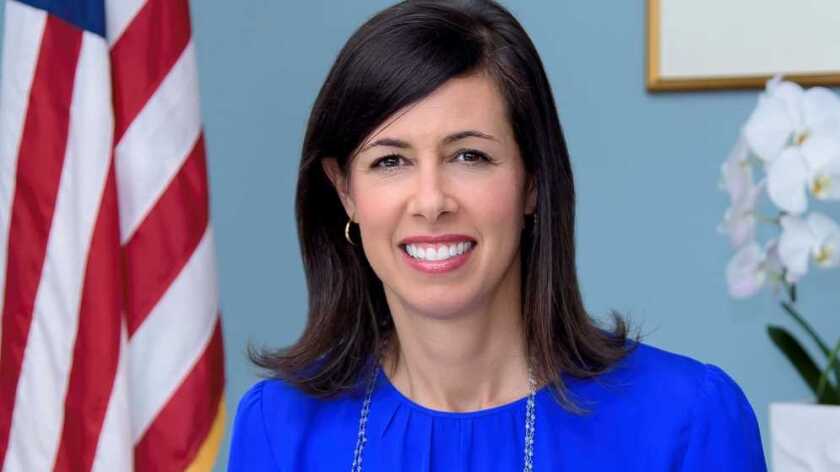FCC issued an order in March stating that all originating and terminating voice service providers must implement Stir/Shaken in the Internet Protocol (IP) portions of their networks by June 30, 2021.
When paired with call analytics, the move is intended to help protect American consumers from fraudulent robocall schemes that cost citizens approximately $10 billion annually, according to FCC figures.
The commission said that improved caller ID authentication "will also benefit public safety by reducing spoofed robocalls that disrupt healthcare and emergency communications systems", while restoring trust in phone services.
The FCC said the benefits of eliminating "the wasted time and nuisance caused by illegal scam robocalls" will exceed $3 billion annually.
“I’m encouraged to see the increasing availability of robocall blocking tools for consumers,” said acting FCC Chairwoman Jessica Rosenworcel (pictured).
“Stopping robocall scammers from bombarding consumers and businesses takes a whole-of-network approach. Call blocking consumer tools are a critical part of this approach – along with STIR/SHAKEN implementation, network-level blocking, and ensuring gateway providers don’t let illegal robocall campaigns onto our networks. That said, we have to put consumers first, and it’s in everyone’s best interest to get these junk calls off our networks. I will continue to push industry under the law to make these tools free and easily available to the public.”
On June 29, FCC released the second of two annual reports from the FCC on robocall blocking: Call blocking tools available to consumers.
Over the past three years, the FCC has pursued a multi-part strategy for combatting spoofed robocalls—issuing hundreds of millions of dollars in fines for violations of its Truth in Caller ID rules; expanding those rules to reach foreign calls and text messages; enabling voice service providers to block certain clearly unlawful calls before they reach consumers’ phones; and clarifying that voice service providers may offer call-blocking services by default.
The FCC - which formally proposed and sought public comment on mandating STIR/SHAKEN implementation in June 2019 - has also called on the industry to “trace back” illegal spoofed calls and text messages to their original sources.
The US is the first country to make such a move, however British regulator Ofcom has also hinted at similar measures.





